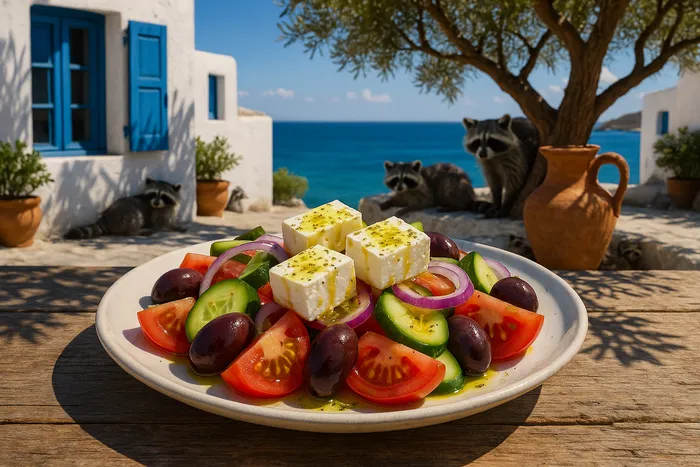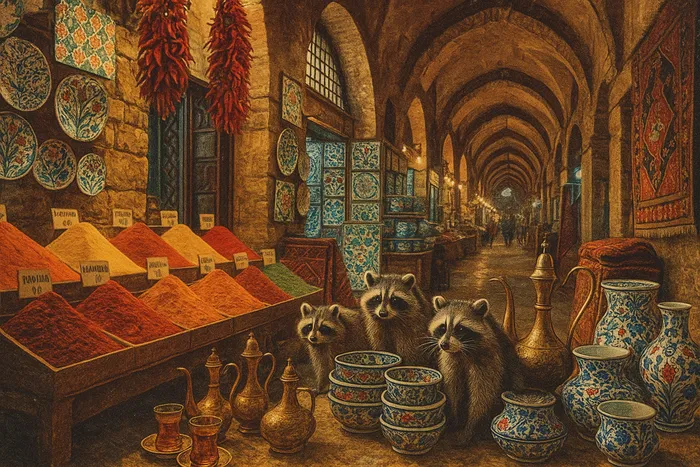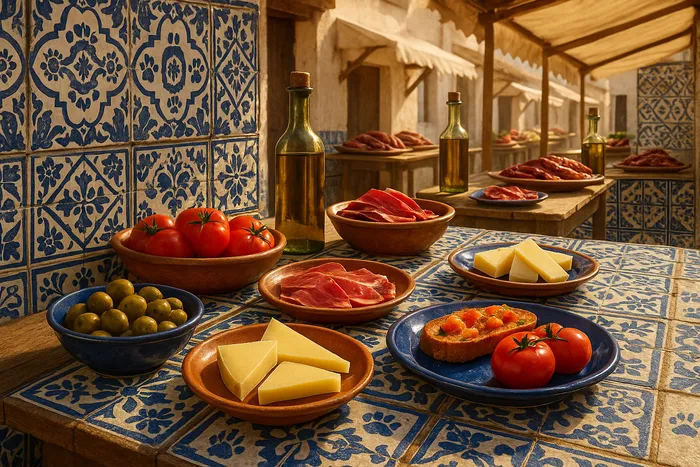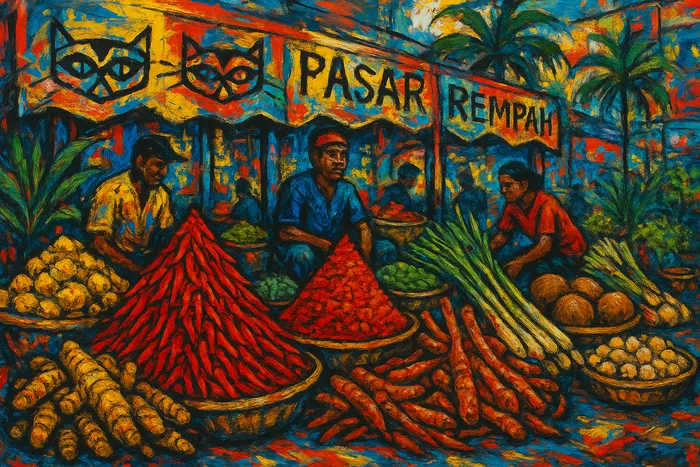
Greek cooking operates on a simple philosophy: take the best ingredients you can find, treat them with respect, and share them with people you care about. Walking through Athens' central market or sitting in a Santorini taverna overlooking the caldera, you quickly understand that Greek cuisine isn't about complexity—it's about perfection through simplicity.
This is Mediterranean cooking at its most essential, where olive oil isn't just an ingredient but a way of life, where tomatoes taste like concentrated sunshine, and where every meal becomes a celebration of abundance, community, and the understanding that food tastes better when shared under an endless blue sky.
The Holy Trinity: Olive Oil, Sun, and Sea
Greek cuisine revolves around olive oil with the devotion other cultures reserve for religion. Greek olive oil—particularly from regions like Kalamata and Crete—provides not just flavor but the foundation for the entire culinary philosophy. It's used lavishly, without apology, because Greeks understand that good olive oil makes everything taste better.
The Mediterranean sun concentrates flavors in ways that can't be replicated elsewhere. Greek tomatoes, grown in rocky soil under intense sunshine, develop sweetness and acidity that makes them perfect for Greek Village Salad. Sun-dried ingredients like oregano, thyme, and tomatoes carry the essence of Greek summers into winter kitchens.
The sea provides both food and flavor. From the tiny fish grilled whole on Aegean islands to the sea salt that seasons everything, Greece's maritime culture infuses its cuisine with briny, oceanic notes that remind you that this is a nation defined by its relationship with water.
Island Hopping: Regional Differences
Each Greek island develops its own culinary personality based on geography, history, and local ingredients. Crete, the largest island, offers a cuisine that's more North African in influence, with liberal use of rusks, wild greens, and aromatic herbs that grow wild in the island's mountains.
Santorini's volcanic soil produces tomatoes, white eggplants, and capers that taste unlike anything grown elsewhere. The island's winemaking tradition, dating back 3,500 years, creates wines that perfectly complement the local seafood and sun-baked vegetables.
Mykonos and the Cyclades focus on simple preparations that showcase pristine ingredients: grilled fish with just lemon and olive oil, tomato salads that taste like summer, and local cheeses that reflect the islands' pastoral traditions.
The Ionian Islands, influenced by centuries of Venetian rule, offer a cuisine that bridges Greek and Italian traditions, with pasta dishes and cooking techniques that remind you how porous cultural boundaries become when people share seas and seasons.
Taverna Culture: Democracy at the Table
Greek tavernas operate on principles that go beyond food service—they're social institutions where community happens over shared plates and unhurried meals. The tradition of mezze transforms eating into a social event where time stops and conversation flows as freely as the wine.
Family-run tavernas often don't have written menus. Instead, the owner or cook describes what's fresh, what's been cooking slowly all day, and what they recommend. This personal approach to dining creates an intimacy between kitchen and table that makes every meal feel like a dinner party.
The Greek approach to ordering—multiple dishes shared by the table—encourages community and ensures everyone tastes everything. This isn't just practical; it's philosophical. Greeks believe food tastes better when shared, and that meals should bring people together rather than isolate them with individual plates.
Ancient Ingredients, Timeless Techniques
Greek cuisine connects directly to ancient culinary traditions in ways that few other cuisines can claim. Olive oil, wine, honey, and grain-based dishes appear in Homer's Odyssey much as they appear on modern Greek tables. This continuity isn't nostalgia—it's proof that some combinations are perfect.
Wild greens (horta) play a crucial role in Greek cooking, connecting modern meals to ancient foraging traditions. Greeks identify and cook dozens of wild plants that most people would consider weeds, turning them into nutritious dishes that taste of the Mediterranean countryside.
The preservation techniques—salt-curing olives, aging cheeses in caves, sun-drying tomatoes and herbs—developed from necessity but created flavor profiles that define Greek cuisine. These methods concentrate flavors and create the intense tastes that make Greek food so distinctive.
Seasonal Rhythms: Eating with Nature
Greek cooking follows seasonal rhythms that connect meals to the natural calendar. Spring brings lamb for Easter celebrations, wild greens for salads, and the first young vegetables of the year. Summer explodes with tomatoes, cucumbers, peppers, and herbs that form the backbone of Greek salads and meze.
Fall means olive harvest, grape harvest, and the preserving activities that will carry summer flavors through winter. Families gather to make tomato paste, cure olives, and prepare preserves that will sustain them through cooler months.
Winter cooking focuses on heartier dishes—stews, braised meats, and preserved vegetables—but always with the understanding that this is temporary. Greek cuisine is fundamentally optimistic, always looking forward to the next season's abundance.
The Philosophy of Philoxenia
Philoxenia—love of strangers—defines Greek hospitality and extends deeply into food culture. Greeks will invite strangers to share meals, insist that guests eat more than they intended, and treat cooking for others as both duty and pleasure.
This hospitality isn't performance—it's cultural DNA. Greek families routinely cook far more food than they need, operating under the assumption that someone might stop by who needs feeding. Leftover food is never waste; it's opportunity for spontaneous generosity.
The tradition extends to tavernas and restaurants, where owners often send additional dishes "from the house" or offer tastes of specialties whether you ordered them or not. This abundance mentality creates dining experiences that feel more like visiting relatives than patronizing businesses.
Modern Greek Cuisine: Innovation with Respect
Contemporary Greek chefs are rediscovering forgotten dishes and techniques while presenting them in modern contexts. They're proving that Greek cuisine has sophistication beyond rustic taverna fare, without abandoning the principles that make Greek cooking special.
This modern movement emphasizes high-quality ingredients, traditional techniques, and creative presentations that honor the past while speaking to contemporary palates. Young chefs are foraging for wild herbs, reviving ancient grains, and creating dishes that showcase Greece's biodiversity.
The movement also emphasizes Greece's position as a bridge between Europe, Asia, and Africa. Modern Greek cuisine incorporates influences from all three continents while maintaining its distinctly Greek character.
Wine and Spirits: Liquid Culture
Greek wine culture spans millennia, with indigenous grape varieties that exist nowhere else in the world. Assyrtiko from Santorini, Agiorgitiko from Nemea, and Moschofilero from Mantinia create wines that taste distinctly Greek and pair perfectly with the local cuisine.
Ouzo, Greece's anise-flavored spirit, serves as more than alcohol—it's social lubricant that transforms simple meze into extended celebrations. The ritual of ouzo service, the gradual clouding when mixed with water, and the understanding that ouzo meals last for hours all contribute to Greek social culture.
Retsina, wine flavored with pine resin, connects modern drinking to ancient techniques. While many foreigners find it challenging, Greeks understand it as wine that tastes like Greece itself—piney, resinous, and utterly unique.
The Greek Table: More Than Food
Greek dining emphasizes the social aspects of eating over the purely nutritional. Meals stretch for hours, with courses appearing gradually and conversation flowing between dishes. This isn't inefficiency—it's intention. Greeks understand that rushing through meals misses the point.
The table becomes a space for politics, philosophy, family news, and community building. Food provides the excuse for gathering, but the gathering itself becomes the main event. This approach to dining creates social bonds that extend far beyond individual meals.
Greek cuisine offers something essential in our rushed world: permission to slow down, appreciation for simple pleasures done well, and understanding that the best meals happen when good food meets good company. From the humblest Greek Village Salad to the most elaborate feast, Greek cooking demonstrates that luxury isn't about expense—it's about abundance, generosity, and the wisdom to know that life's greatest pleasures are often its simplest ones.









